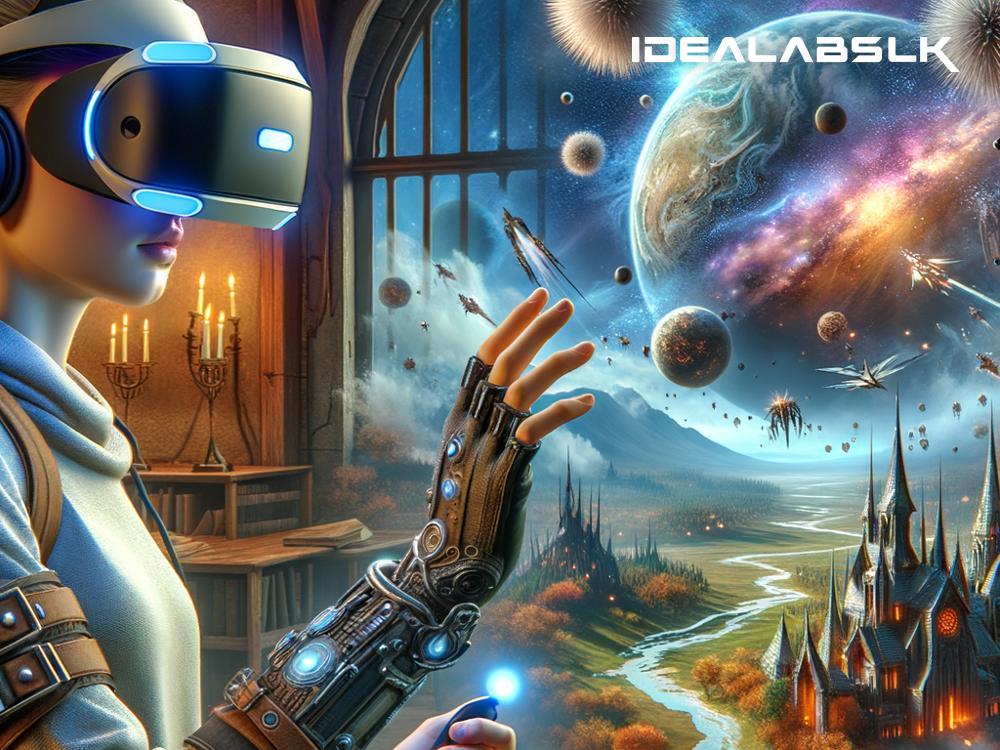AI in Virtual Reality Games: Creating More Immersive Experiences in 2025
The world of gaming has been one leap after another, from pixelated characters we moved to high-definition environments, and now, we're stepping into the terrain of what feels like our dreams through virtual reality (VR). But what's been pushing the envelope even further is the infusion of artificial intelligence (AI) into VR. As of 2025, it's not just about putting on a headset and stepping into another world anymore; it's about that world responding to you in unexpected, intelligent ways.
What's the Big Deal with AI in VR?
Imagine a game that adapts to how you play. A virtual reality game where the characters remember your previous choices and remind you about them, where the enemies learn from your strategies and try to counter them, where the storyline twists and turns based on your interactions within the game. It's like stepping into a book where you're not just a character but the author too. That's the promise of AI in virtual reality games.
AI brings in a sense of intelligence and autonomy within the game. Non-playable characters (NPCs) aren't just scripted entities anymore; they have the ability to learn, react, and interact with players in ways that were previously unimaginable. The worlds become alive, adapting and evolving based on your actions. This doesn't just make games more immersive; it makes them infinitely replayable. Each playthrough offers a different experience, molded by the AI to your unique gameplay style.
Personalization: The Key to Immersion
One of the profoundly impactful features AI brings to VR games is personalization. The AI observes how you play, what strategies you prefer, what kind of narratives intrigue you, and it subtly steers the game to cater to your preferences. This personal touch makes the game feel more "yours," enhancing the immersion.
Moreover, dialogue with NPCs has gone from selecting pre-written responses to having conversations that feel incredibly real. Thanks to natural language processing, a branch of AI, you can talk to characters as you would with a human, and they respond naturally. This has made interactions in VR worlds more engaging and deep, further blurring the lines between reality and virtuality.
Adaptive and Persistent Worlds
Imagine stepping into a VR game where your actions last week have visibly impacted the environment and its inhabitants. Maybe you saved a village from bandits, and now they've erected a statue in your honor, or perhaps you chose to side with a faction in a conflict, and now the game's world reflects the aftermath of that war. AI-driven VR games are not just playing in the moment but becoming a part of a persistent, evolving world.
This adaptive nature extends to the game's mechanics as well. AI can generate dynamic missions and challenges, adapt the difficulty level in real-time, and create a unique gameplay experience tailored just for you. It's all about making the virtual world feel as real and as responsive as the real world.
Beyond Games: The Future of AI in VR
While gaming is the flagship use of VR and AI integration, it's just the tip of the iceberg. The same technologies that make VR games so immersive are paving the way for applications in education, training, therapy, and beyond. Imagine practicing a speech in front of a virtual audience that reacts genuinely to your words, or a virtual therapist who can help overcome phobias in a controlled, yet realistic environment.
The possibilities are as vast as they are exciting. AI-driven VR has the potential to not only transform how we play games but how we learn, heal, and connect with each other. It's a testament to human creativity and technological advancement.
Conclusion
In 2025, AI in virtual reality games isn't just a feature; it's the foundation of truly immersive and endlessly fascinating experiences. We've barely scratched the surface of what's possible when we combine the infinite potential of AI with the immersive power of VR. As we move forward, one thing is clear: the virtual worlds we'll explore will be more alive and more tailored to us than ever before. The future of gaming is here, and it's incredibly bright.

